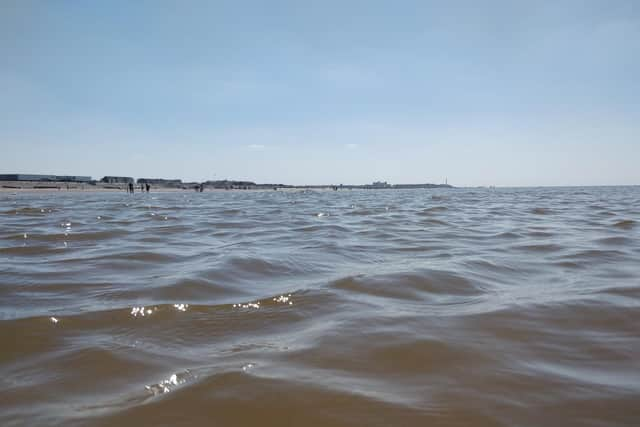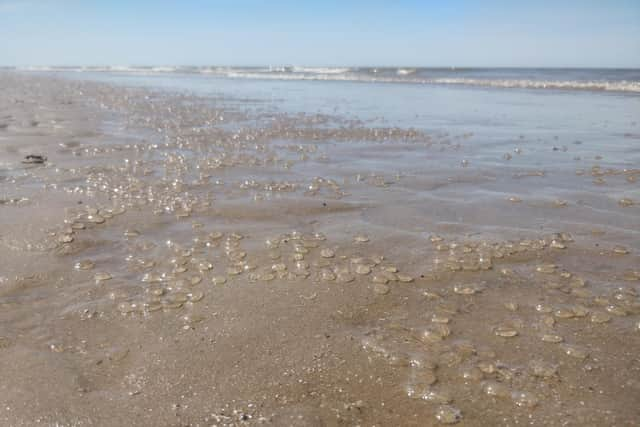What are the tiny clear blobs washing up on the beach and are they dangerous?
and live on Freeview channel 276
But what are they - and are they dangerous?
It was initially believed that the creatures were salps, a primitive type of marine invertebrate,
But Debbie Williams, Lancashire's Living Seas Project Officer, this afternoon said they are more likely to be Sea Gooseberries, a type of comb jelly.


Luckily, they are safe to handle and cannot sting.
Advertisement
Hide AdAdvertisement
Hide AdDebbie said the find is "really amazing as I don't think we've seen so many there before".
Writing in 2016, naturalist Jim Hurley said five species of comb jellies have been recorded in European waters.
He said: "Only one, the Sea Gooseberry, has a common English name.


"It is about the size and shape of a gooseberry but is transparent so, on the beach, it looks like a shining blob of wallpaper paste. It comfortably fits on a teaspoon."
Advertisement
Hide AdAdvertisement
Hide AdHe added: "Unlike other jellyfish, comb jellies do not sting people so they are safe to swim with and to handle."
The water off the coast of Blackpool is officially cleaner than it has been for years, which is having a tangible impact on marine life.
Last year, the water quality at Bispham was classed as 'excellent' by the Department for Environment, Food, and Rural Affairs (Defra).
Blackpool's three other beaches - north, central, and south - were classed as 'good' against strict standards based on World Health Organisation (WHO) guidelines.
Advertisement
Hide AdAdvertisement
Hide AdIn Wyre, the water at Cleveleys and Fleetwood was classed as 'good' for the fourth year running.
Two years ago, a number of experts told The Gazette the vast sums of money invested in clean waters was helping to attract oceanic greats like the bottlenose dolphin, basking shark, and even turtles usually only seen in the Caribbean.
The number of royal mammals - porpoises, whales, and bottlenose dolphins - washing ashore has risen in recent years, indicative of greater numbers living in the sea, while rescuers from the RNLI were even forced to scramble in their lifeboats after passers-by tried to rescue a drowning dog, which turned out to be a bewildered seal.
“The Irish Sea is hugely important,” senior campaigns officer for the Wildlife Trust in Lancashire, Alan Wright, said previously.
Advertisement
Hide AdAdvertisement
Hide Ad“Its muddy image is brilliant for wildlife because it actually means it supports lots of different creatures, from small micro-organisms that feed smaller wildlife like prawns, crabs, and other shellfish.
“They, in turn, feed larger fish like mammals and sea birds. Jellyfish are abundant. We see many washed ashore, and they are food for turtles.”
In 2011 and 2012, the Good Beach Guide revealed the resort's beaches did not meet the minimum water quality standard and failed the tests.
Since then, the Fylde Peninsula Water Management Partnership, which is made up of public bodies and private firms, has worked to improve the area's sewage system - a well-documented and long-standing issue - and boost the sea water quality.